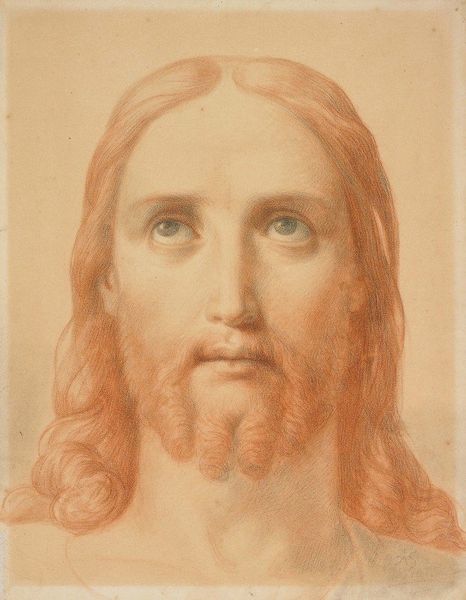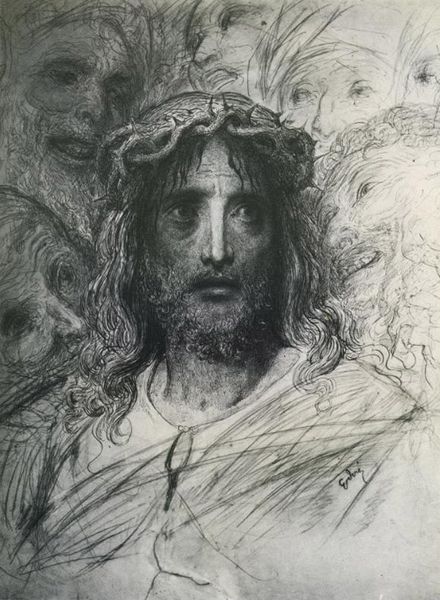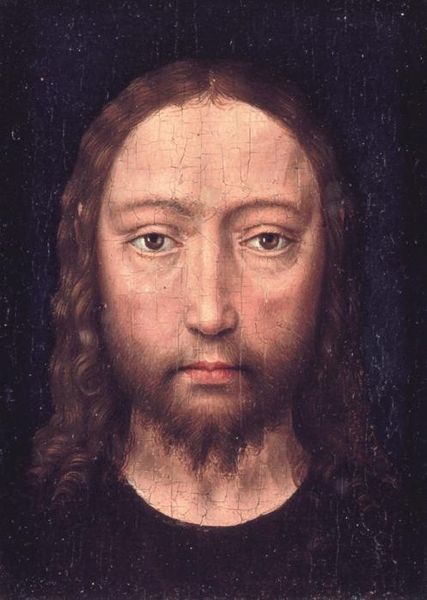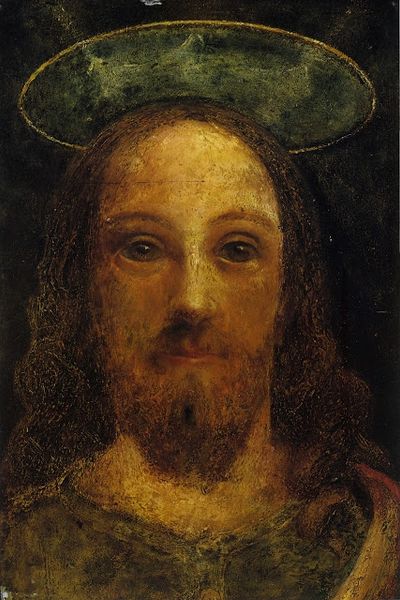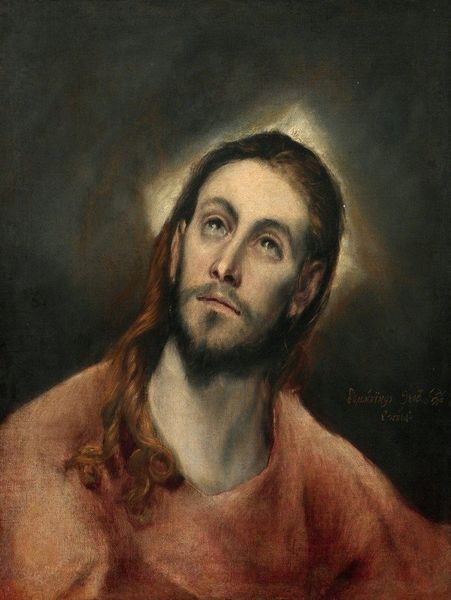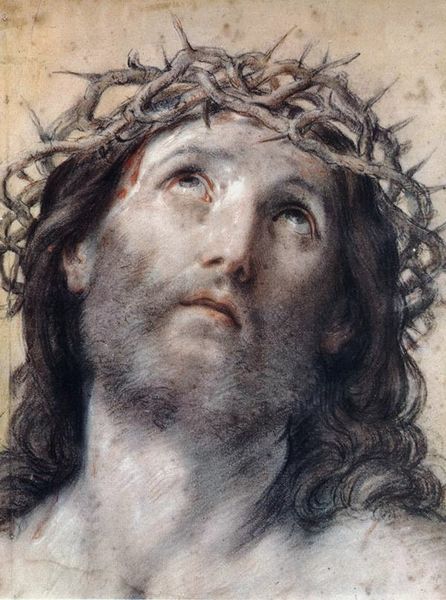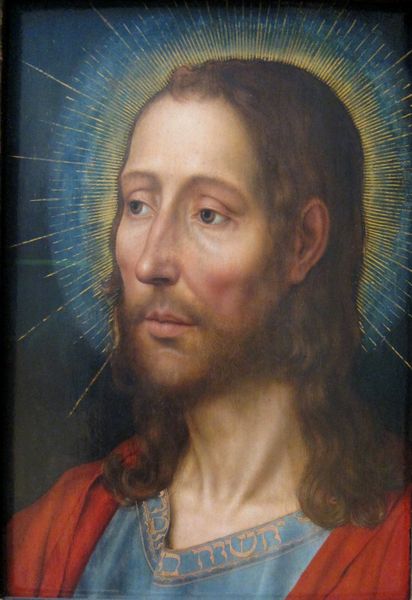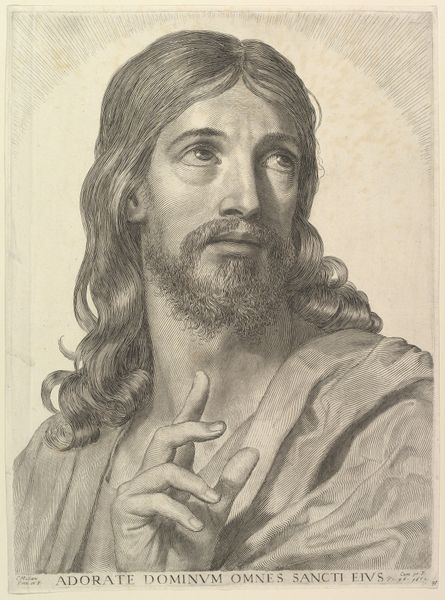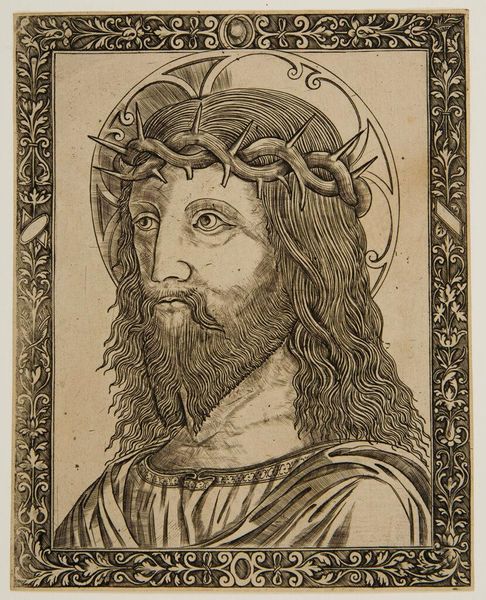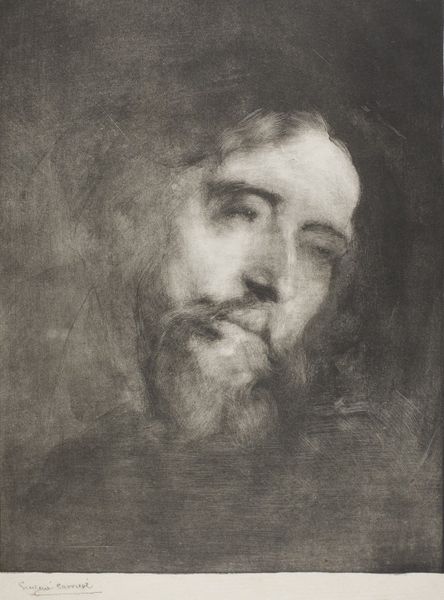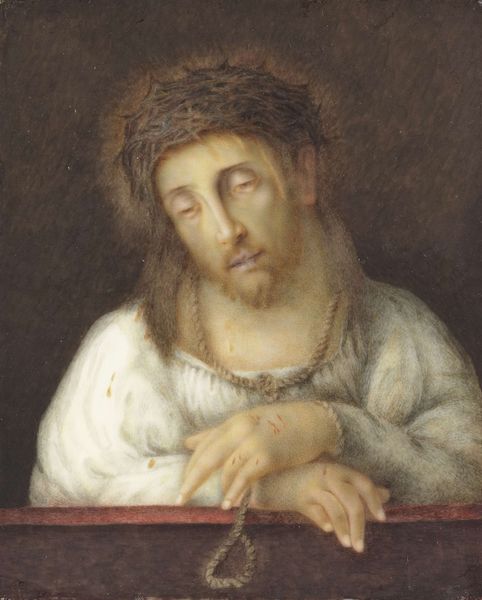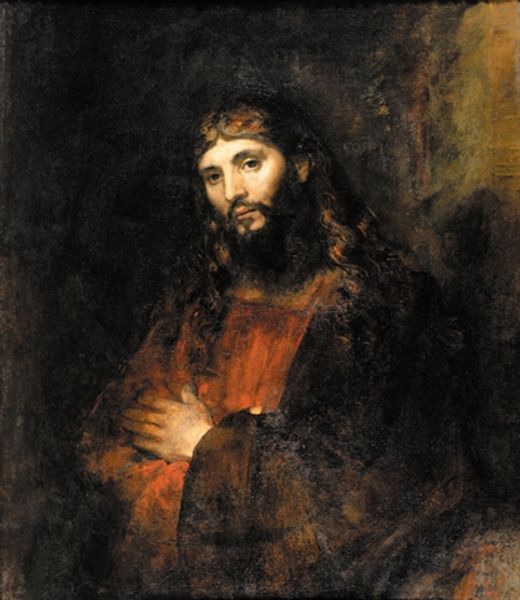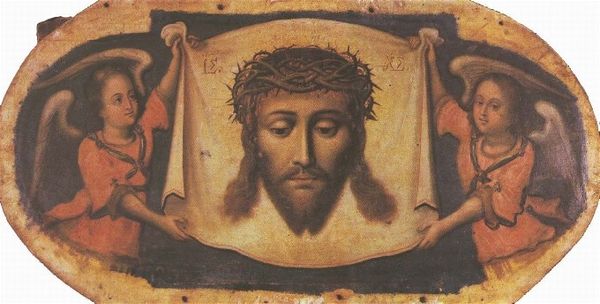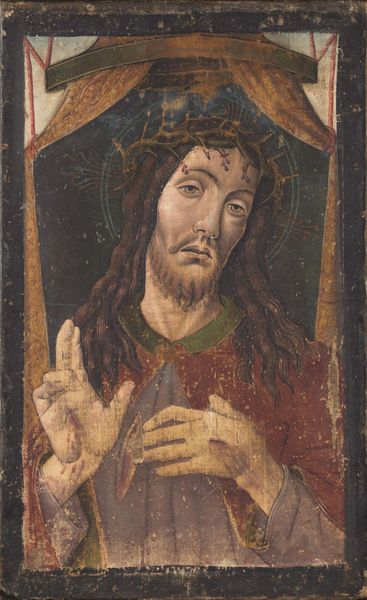
painting, oil-paint
#
portrait
#
byzantine-art
#
head
#
painting
#
oil-paint
#
charcoal drawing
#
figuration
#
oil painting
#
portrait drawing
#
history-painting
#
portrait art
Copyright: Public domain
Editor: Looking at Lembesis’s “Hagiography,” I'm immediately struck by how intensely the figure stares out. The oil paint gives it a textural, almost aged quality. What kind of historical narratives do you think this piece engages with? Curator: It is intriguing, isn’t it? The work invites us to consider the role of the icon, not just as a religious object, but as a potent political image. Think about Byzantium – these images weren’t merely devotional; they were assertions of power, visual representations of imperial ideology diffused throughout society. Editor: So, you’re saying this image might carry a deliberate echo of that imperial visual language? Curator: Precisely. Lembesis knowingly adopts that visual vocabulary. But what happens when a modern artist resurrects such a loaded form? What message is being conveyed by utilizing and, perhaps, subtly subverting it? Editor: Maybe he's questioning the relationship between religious iconography and power, almost repurposing a symbol of authority? Curator: Interesting thought. Consider where this work might have been displayed, and for whom. Was it intended for a church, a gallery, a private collection? Its public function shapes its meaning. Does knowing Lembesis’ background influence your view? Editor: That really reframes how I see it. I was focused on the spiritual aspect, but now I realize there’s a whole layer of social commentary I was missing. Thanks, this was really insightful. Curator: Likewise, considering the public role of art can provide a profound new understanding.
Comments
No comments
Be the first to comment and join the conversation on the ultimate creative platform.
